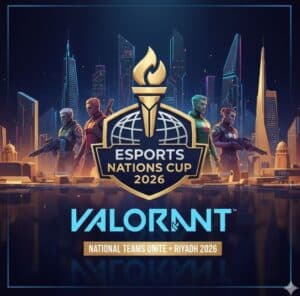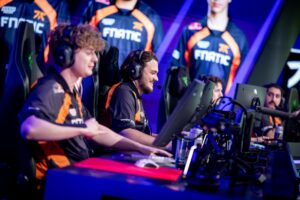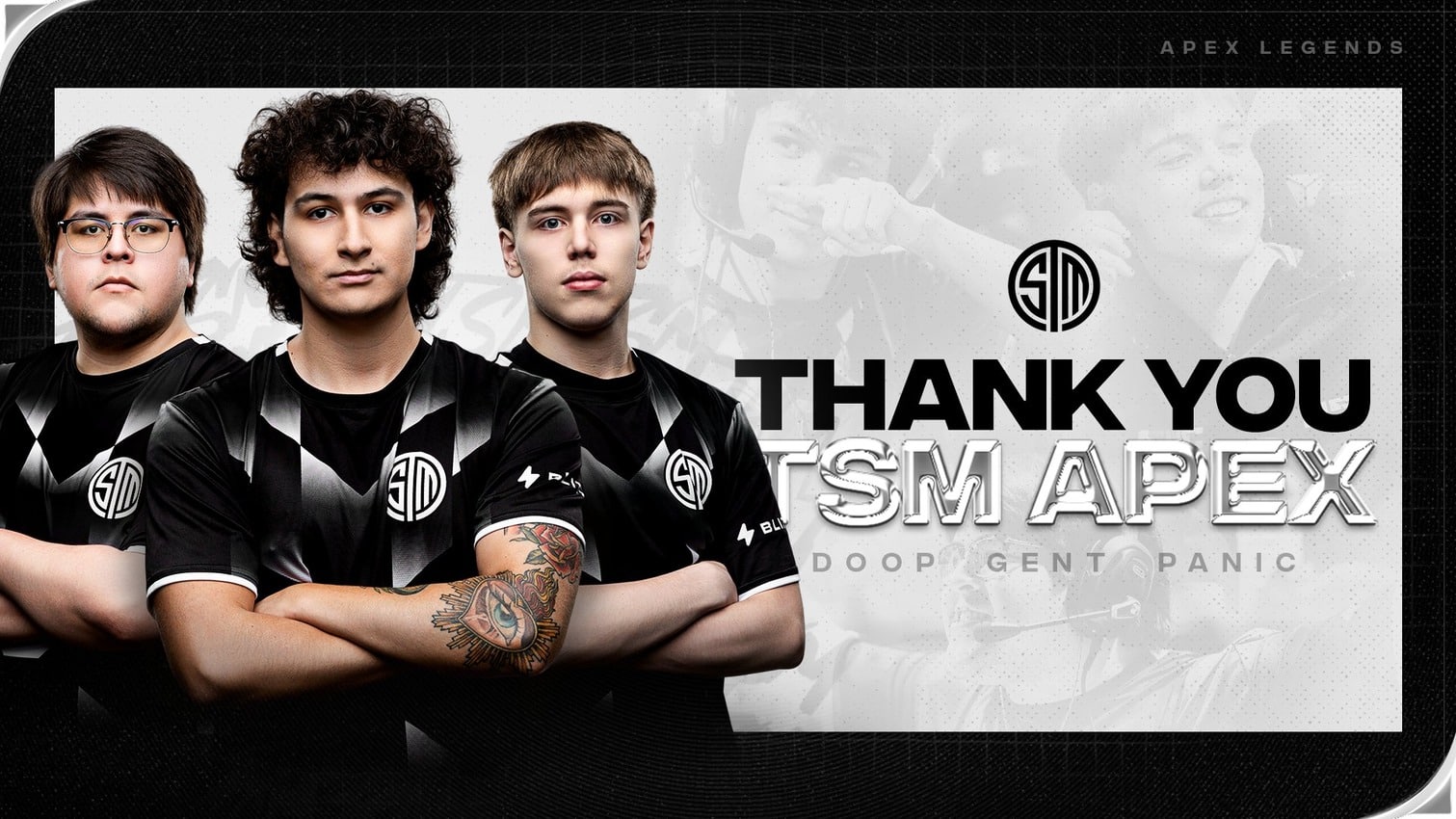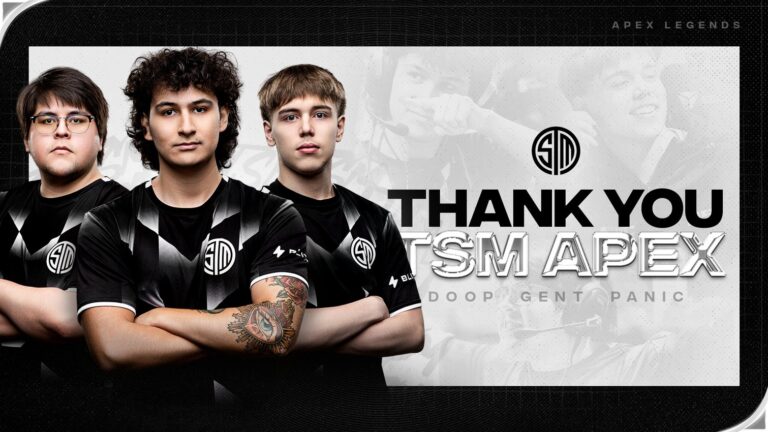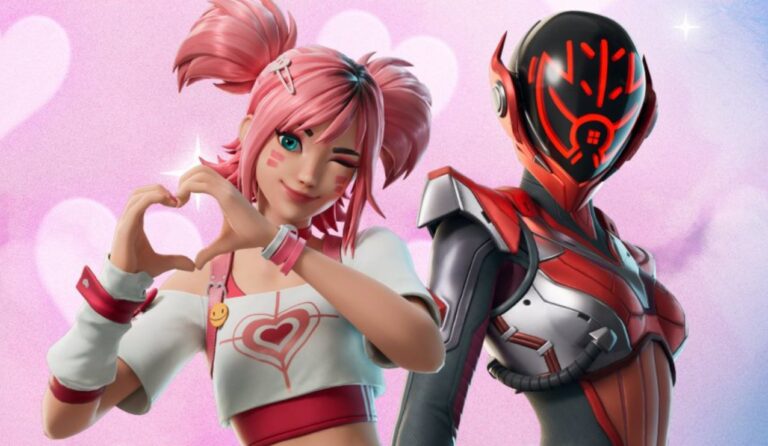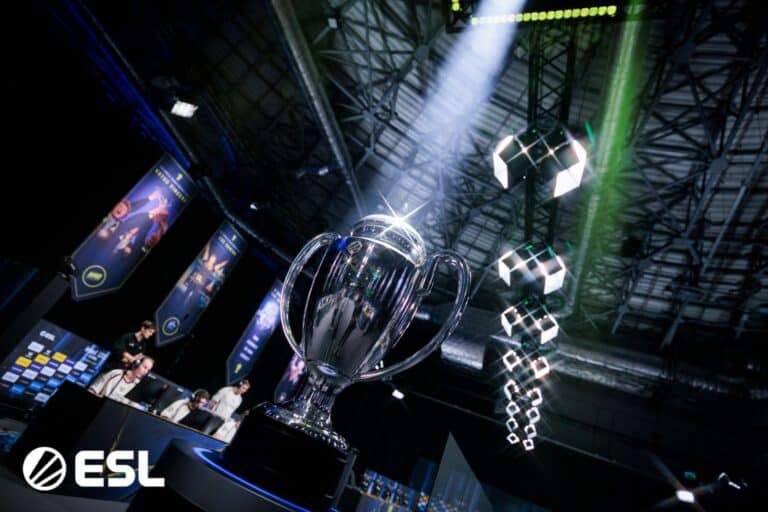Sheffield esports organisation Endpoint reveal plans for creator teams in esports via new TikTok network Endpoint Live, discuss future of UK esports & their CS team – interview
Dom Sacco, Senior Editor
Last Updated: 11/02/2026
To esports fans in the UK, Endpoint is a well-known name – especially in Counter-Strike circles. They’re a lot more than just an esports organisation, with their Pracrooms bootcamp facility, Loadout Media arm, UKIC tournaments and Passbot authentication bot.
And today they have partnered with TikTok to launch free creator network Endpoint Live, offering 100% of revenues they earn through the platform, access to one-to-one creator management, brand activations, career management, the Endpoint HQ media studio in Sheffield and quarterly networking events there. Endpoint’s existing creators, including Pickapixel and Poopernoodle, are already on board, and they have signed a group of Rocket League creators who will be streaming and participating in the RLCS under the Endpoint CeX banner. Dom Sacco treks up to Sheffield to ask Endpoint COO Peter Thompson and CEO Adam ‘Adz’ Jessop about the new offering, Endpoint’s CS team and the future of UK esports.
Hi guys, it’s great to be talking to you from the amazing Endpoint HQ/Pracrooms facility in Sheffield today, thanks for your time. Back when you launched Endpoint in 2016, I conducted my first remote video interview with you, Adz. We’re in 2025 now, nine years later. Can you reflect on the journey so far?
Adz: The roller coaster! It’s been a good journey. Back then, when you interviewed me, Endpoint was in its real infancy. It wasn’t a registered company or anything back then. I’d not met Pete, it was something I was just starting up with a couple of guys that I knew from the scene previously. Then I met Pete about six months later and that’s when the Gfinity Elite Series happened and everything like that, which really accelerated us.
Obviously we’ve been through covid which did its own things to the esports scene. I think it brought more eyeballs on esports and more people came into the industry, and certainly more people watched it than ever before. So we had a period of really rapid growth during covid, we pretty much 8x our revenue year-on-year. Since covid has kind of dissipated, I guess, marketing budgets have gone back into exhibitions and physical sports, I think we have experienced this ‘esports winter’, as it’s been coined, a little bit.
And for myself and Pete, a lot of that journey for the last two to three years has been evolving. How do we stay alive? When you look back at all the ESL UK Premiership titles and the things that we’ve won, a lot of the teams that we were competing against simply aren’t around anymore, and that’s a huge shame.
Really we’ve only been able to kind of keep our necks above water because of the fact that we’ve been willing to change what we do a little bit and not be afraid to take on new things. It means that we’re very busy and it means that there’s a lot of plates to spin and what have you, but that’s been the story of the nine years.
It’s been about trying to think of ways that we can still be an esports team – we don’t want to lose that identity and it’s certainly the riskiest part of the business, don’t get me wrong, but that is still who we are at its core.
It’s about having these other products and brands around it that will help us be around for years to come.
Pete: We’re always a big believer that if we’re pitching for a sponsorship, which is the standard revenue for any esports org, do you actually believe in your product that you’re going to get the ROI for that brand? And if you do believe in that, why do you need that brand, sometimes, when you can create your own brands, and realistically help them grow through esports?
Esports has amazing viewership, it’s great for brand recognition, it’s great for a lot of things, so if you actually believe in that, do it yourself, sometimes. So it’s great to get these sponsorships, but we can also vertically integrate some businesses into our ecosystem that we can grow with as well. Like Loadout Media that does media fulfillment, we need it for Endpoint, so we’ll do a business on it.
Much like Pracrooms – we need bootcamps for Endpoint, so let’s do it ourselves. And it’s not for everyone, but it’s kind of like we’ve cut out some nice niches in the UK that we think we’re lacking a little bit, which we also needed and were spending a lot of money on already.
I’ve thought about that too. When I started Esports News UK nine years ago, a lot of the teams and the tournaments I was writing about back then no longer exist, like the ESL Prem, the Gfinity Elite Series, orgs like Vexed etc. But you’ve now got your own UKIC and have held tournaments at this facility, and I think you’ve diversified really well with Pracrooms, UKIC, this authenticator bot, all kinds of things.
Pete: The reason why we’ve diversified and others necessarily haven’t, though, is if you look at all the other big esports organisations in the UK, they’ve all got VC funding, so it doesn’t mean they necessarily have to diversify on day one or think about that, because they’ve got the backing to do that.
We’re fully bootstrapped as a company and one of the only ones in the UK that has got this far to be fully bootstrapped, so we kind of have to do that because we haven’t taken external investment. So for us it’s like every penny we’re spending, we have to account for it in some ways, so it’s like that’s what we’re spending, could we do that in a better way? Whereas a lot of these VC-backed companies will just spend it, because their business model says they’ll make it back later. We can’t really do that, so I think that’s why we’ve diversified quicker than some others.
@sloopyj_ My boss is going through the accounting for 2024, and my final spend on my company credit card is out! How much did I end up on 👀 Fortunately I’m keeping my job, unless anyone has a higher limit for me 🤣 #fired #HR #jobsearch #work #officelife
♬ Roxanne - Instrumental - Califa Azul
Adz: And I think, like Pete said earlier and you touched on there, a lot of it has been driven by our need, in terms of, ‘oh, we need bootcamps, let’s build a boot camp space’, whilst we’re at it we can then sell that to other people. With the passbot, we needed a password manager, we happen to use Discord – we have a product here that we can take to market, let’s explore that. And the same with media, we needed a media studio, we have one now in the facility, why don’t we go out and try and acquire clients that we can then sell that as a service to?
So a lot of it has been driven by stuff that we need that we don’t necessarily have the budget to just frivolously spend it and hire studios here and there and whatever, whereas it’s an investment to invest in building this, but if we know that there’s a potential for us to realise revenue from it as well, then it makes it a much more sustainable investment.
Pete: We’re going out to pitch to financial advisors for media here, it doesn’t have to be for esports. But it’ll pay the bills for esports, that’s the hope.
It’s clever because you’re identifying needs, and then you’re meeting those needs by doing it yourself. Talking of meeting needs and launching offerings based on those, Pete you recently tweeted about ‘something new coming in 2025’, as did the Endpoint account. Today you’re revealing it. So tell us about Endpoint Live.
Pete: Yeah, sure. It’s our new partnership with TikTok. For us, Endpoint as a brand is kind of splitting into two. But they’ll work together. So we have Team Endpoint, or Endpoint CeX, which are our professional esports teams, and then we’re going to have Endpoint Live, which is going to be our creator network.
We’ve had creators/influencers for the last eight years or more, but we’ve always kind of struggled to monetise and integrate them into Endpoint as a brand. Realistically, this TikTok partnership is helping us do that.
Introducing Endpoint LIVE 🔴
— Endpoint CeX (@TeamEndpoint) January 24, 2025
A creator network built to help creators level up 📈 pic.twitter.com/LVohTkCQGf
It doesn’t matter how large the creator is, it could be someone who’s getting one concurrent viewer all the way up to thousands of concurrent viewers. We can cater for them here at Endpoint. We’ve got this amazing asset with this facility in Sheffield, and for us it’s going to be about onboarding any creator in the UK or Ireland that wants to get involved.
It could be a part of Endpoint Live and we can help them as a community to grow, and we’ll give them all the resources to do that, TikTok are telling us the secret sauce of how to stream on TikTok live, and we’re going to give that to the creators. We’ll help them with schedules, we’ll help them with all sorts, and as they grow, if they’re larger enough, the larger ones can start making use of our facility as well. Start making use of our staff’s time, get headshot photos, do podcasts, do bootcamps.
There’s the traditional model of getting esports teams into professional events, now we are likely to do content creator teams who have an interest in that game into esports events, then we create a bunch of media around that, we can help those content creators get more viewers because they’re at a full esports bootcamp facility and they can get in-person content, instead of in their bedrooms as it were.
And we can really professionalise the whole thing for them, and us. And it’s a great partnership, essentially. We can also bring sponsorships and so on to them as well.
So Endpoint Live is coming at the end of January 2025.
“We are thrilled to announce the launch of Endpoint Live, our new creator network in partnership with TikTok. This platform is designed to empower creators by providing them with the tools, resources, and support needed to thrive on TikTok Live and as a creator. By leveraging our state-of-the-art facilities and the expertise of our dedicated staff, Endpoint is committed to adding real value to creators’ experiences. Our goal is to build a community where creators can grow together and unlock new opportunities.”
Peter Thompson, Endpoint
Adz: Over the years we’ve had a lot of people reach out to us and say that they’d love to be a content creator for Endpoint, and we’ve never quite got that model right. We have creators that we work closely with and have done for a number of years, and they’re great and we’ve had great relationships with them, but it’s about how we can scale that.
We’ve never been bigger believers of, yeah sure you can represent us just, slap a logo on and we won’t be involved, we’ll be very hands off.
🚨 Endpoint CeX are coming to COD!
— Jamie ‘Sloopy’ Sykes (@SloopyJ_) January 25, 2025
I want to speak to the best of the best in Challengers, I want to give you guys the support infrastructure of a pro esports org.
In return we want to see scrims streamed, content being made, and you guys taking full advantage of the… https://t.co/zlpYVfe6OR pic.twitter.com/yzL8r1WNDV
We always try and you know act as a family and look after people that are under the Endpoint banner. And this will allow us to do that because we can have a closer relationship with them in terms of how they’re performing on TikTok. We’ve got that contact there and that direct communication with TikTok, and actually give them guidance and tools. And we know what we’re talking about because it’s coming from the people who actually build the platform.
So it feels like we’re able to have more of a value-add, than just allowing them to have a logo and be part of it that way.
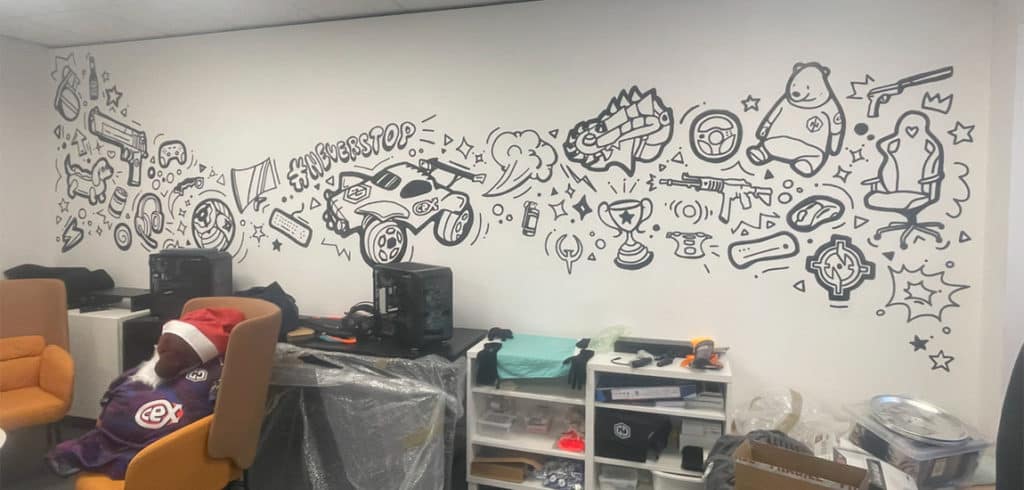
Pete: It’s also not just TikTok – I want to reiterate that we love creators on Twitch, YouTube, everything, but they all allow you to multistream now, so why not do it at the same time and create yourself another revenue source?
TikTok’s goal is to make anyone be able to have TikTok as their main income and be a full-time thing for them, so it’s just us helping people become full-time content creators, essentially.
TikTok has been good for Esports News UK too, as we’ve diversified from just publishing articles. It’s grown over the past year or so, and that secret sauce sounds good! I’ll have to visit and get on board too!
Pete: Yeah! I just want to say it’s completely free for any creators to join as well, everything is just a win-win partnership for both parties there, so it’s a value-add from both sides – that’s the hope.
As long as they’re 18 years old, willing to stream at least 15 hours per month, and not already working with TikTok or another affiliated network, we’d love to hear from them. They can check out all the details and apply at our website live.endpoint.gg
Do you think we’ll see more content creator teams and organisations in esports? That word, diversification, seems to be happening now. We’re seeing longer-form videos on X, and so on. Do you think orgs need to look at where those viewers are, be mindful of that and willing to adapt to new platforms or trends?
Pete: Yep, it’s actually one of the biggest mistakes I think we made from an Endpoint side. When we first launched, so during the first three years of Endpoint, Adam and I were putting money in every month and it wasn’t a profitable thing, it was a hobby we were trying to make a living from.
In those three years we didn’t have a social media manager. That would have been the one person we should have put money in for straight away, instead of the esports teams. We should have had that and it was Adam and I doing it.
Adz: And we hated it!
Pete: Yeah of course we did, but we concentrated so much on Twitter at the start, we weren’t doing Instagram and YouTube at the same time, we basically just did Twitter, so our fanbase on there is larger than other platforms, and I really regret that. If we’d have done everything from the start we could have been bigger on every platform and also not be so reliant on Twitter, which is a dying platform right now.
It’s definitely dying, especially if you look at the analytics behind our month-on-month and numbers and stuff.
We've been working on launching our new Password Management SaaS product for a while now and we are almost there!
— Adam Jessop (@AdamJessop) October 23, 2024
We're finally revealing what we have been working on and have created a pre-launch website with full details, including an exclusive lifetime deal for early backers! https://t.co/ItHkSgnJ5k
I saw the UK games industry trade body Ukie left Twitter the other week to hop over to Blue Sky. You have to choose which platform is best for you, because I’m told by some social media experts that it’s not great to repeat the same content on multiple platforms.
Pete: Yeah, you have to choose. And once we got a social media manager though, we got Rhiannon [Taylor], who is fantastic, she’s been with us for the last four or five years now, that massively helped us.
Adz: I don’t think content types are going away, I think it’s just there are different audiences and you have to cater to those audiences, like, YouTube isn’t dying. YouTube content will always do well if it’s made correctly, and the same thing with short form. I think it’s just making sure that you apply yourself equally in those areas and that you put the right kind of content out there. I don’t think YouTube Shorts do as well as TikTok, because TikTok seems to be more of a platform for short-form content.
But you still want to have a presence there and so for us it’s about trying to tread that balance you know and making sure that you cater to both audiences.
Pete: YouTube’s definitely king for monetisation, so if you can get YouTube right, you can make a killing. It’s really good but I do think YouTube is super hard for esports as a niche, I just don’t think even if you look at the top organisations, G2, FaZe, any of them, they’re not doing well on YouTube.
Even if they get these top Counter-Strike teams and you look at the viewership, it’s in the tens of thousands, maybe occasionally in the hundreds of thousands, but can you imagine how much money they’re putting into those platforms to create those videos and how much they pay their salaries? There’s no way YouTube even slightly pays that back.
So we’ve always struggled, we didn’t put a lot of effort into long-form content for our pro teams, it’s never going to pay itself back.
On that topic of creators, we’re having a resurgence in the UK and Nordics League of Legends NLC right now, because we’re seeing a rise of creator teams and big personalities playing for fun, with Caedrel’s Los Ratones, IWillDominate’s The Ruddy Sack and more. And we’re seeing it in other esports and territories, with the likes of Disguised Toast and Amouranth running or owning teams. What are your views on this, do you feel like this is where esports is going?
Pete: Yeah, I do think that’s the future for sure. There’s also Moist Cr1TiKaL, KCorp, Gentle Mates etc. I do think that’s a big part, yeah, and to any massive creator looking, feel free to invest in us, we’re welcome to do that as well!
Adz: (laughs) To be honest I think it’s coming from the opposite angle. I think for so long, esports organisations like ourselves have been picking up players and everything and trying to get players to do media and grow their brand, and grow that influence and everything like that. Players, in a lot of times, are very reluctant to do so. I understand that obviously, they want to focus on their craft, but every now and again you’ll get people that do cross over, so in Rocket League the obvious example is ApparentlyJack, who does a very good job of having that balance between content and professional play. So I think what’s happening now is that these players that have managed to build up a brand like Caedrel are realising, ‘actually I could get a bunch of people that have that same attitude and we can compete in a league’.
It doesn’t matter which league you’re competing in at that level, because you’re going to get the fanbase and you’re going to get the viewers because people are tuning in to see those influencers compete, and they’re tuning in to be a part of that story and see how they do. It’s not necessarily about winning the cup or the tournament in terms of the LEC or whatever it’s called – sorry, my League is awful!
It’s about being part of that journey and following those creators that they’ve kind of watched over the years and fallen in love with. I do think that we’re going to see more of that, because audience is king, whether you’re competing for titles you’re competing for that kind of identity and to build up a fanbase through success. But actually if you can build up a fanbase through individual influencers, it’s just about getting those people watching you and that’s really what matters to a team.
Pete: The tough part is we’ve always had the pros, even if a pro does media and the same will apply for content creators, why will the viewer or fan like Endpoint and not just that individual? And that’s still a massive issue and one that we need to figure out. But I think we’re doing that with the Endpoint Live stuff, I think with what we will give them and build a home around here, it’ll be a creator place, a safe place for them to be. We can tell that story, I think.
‘I do think creator teams in esports are the future, for sure. There’s Moist Cr1TiKaL, KCorp, Gentle Mates etc. I do think that’s a big part [of esports now]. And to any massive creator looking for a team, feel free to invest in us, you’re welcome to do that as well!’
Peter Thompson, Endpoint
It’s a tough one. I look at G2 and their League streamer Kesha, he’s integrated nicely with their League team and appears in some of their funny videos and so on.
Adz: I think that’s all the orgs can do, is try and use these influencers and these content creators to kind of get the team brand out there, in the hope that some of them will have that natural connection and turn into fans. But you’ve got to realise as an organisation, at the end of the day they are going to be followers of that influencer first and foremost, and it’s going to be very hard to retain that fan, if that influencer was then to leave on to different pastures.
I have to ask about Counter-Strike, because it’s your main game, Counter-Strike is one of the UK’s most-followed esports along with Call of Duty, a survey found a few years ago. Your CS team won Intel Monsters Reloaded last year, but you didn’t quite qualify for the bigger tournaments and the majors and so on. But you still have that UK core of MiGHTYMAX, Surreal and AZUWU, along with CRUC1AL and cej0t, and a post on the Endpoint website by Tom Coles said recently that ‘the player break represents an opportunity for us to evaluate our position so we can start strongly in January’. So is there anything you can tell us about what’s next for your Counter Strike team? (editor’s note: a few weeks after this interview, Endpoint announced they were pausing their CS team operations)
Pete: We’re in the middle of conversations right now around how that looks. I think the results we’ve had in the last six months aren’t really up to the players’ standards, and I think we’re having those conversations about what needs to be done to move forward and keep going, which we will be.
We’re actually without a coach right now so we need to find a new coach, we’re going through some conversations around team agreements and having a set of rules that we expect and what the players expect. And even if we bring new players in, it will help them see it and be like, ‘okay this is what Endpoint expects when I’m with them,’ which is great.
I think we’ve been a bit soft in the past on that kind of stuff. In terms of team line-up and what we’re doing, we’re still in conversations. We’re still very committed to Counter-Strike, we’re just figuring it out and it’s a tough one for sure.
ALWAYS TRUST IN @azuwuCS 🙏
— Endpoint CeX (@TeamEndpoint) January 17, 2025
1-0 up stealing @NIPCS' pick 👀 pic.twitter.com/cNAOV97C7j
Adz: We’re not naive or ignorant to the fact that it hasn’t been the year that we wanted to have in Counter-Strike. We’re far from the level that we’ve been at previously, so for us it’s been about figuring that out.
For Counter-Strike in general, and maybe this is a symptom of that, but we’ve been focused in 2024 on delivering UKIC and kind of supporting the grassroots CS scene and everything, and yeah maybe that’s taken our time away from the main team, and we’ve maybe missed a few obvious issues there.
But Counter-Strike as a whole, because of UKIC, we’re seeing incredible numbers. Last season we had 93 teams take part in that season, and that’s great, you know, to see that level of activity in Counter-Strike in the UK is incredible.
On that note, that ties in perfectly with my next question, which is about your views on UK esports, because when I think of Counter-Strike in the UK I also think of Epic.LAN, of course. They had their biggest event last year. We’ve also seen the closure of Insomnia, sadly, and I will say sadly despite some of the Counter-Strike community complaining about Insomnia and ticket prices in the past, but it is sad that we haven’t got that anymore. What are your views on the state of UK esports right now?
Pete: Insomnia was a big hit. Adam and I both went to the same Insomnia i20s events, we didn’t know each other back then, but he was playing CoD and I was playing Counter-Strike. It was a massive hit.
Jon [Winkle, MD of Epic.LAN] is doing a great job.
I think we’re doing some okay things in the UK scene [in general], I think we could be doing more as well, but I think we’re doing some good things. It’s a tough scene to monetise and I’m sure you know that as well, from a journalist perspective, it’s a tough scene to monetise, especially from the grassroots side. I think there are some really good brands that are getting involved but we just need more of those brands getting involved. And I think some of them have been burnt in the past for bad activations they’ve done with certain people.
“We’re not naive or ignorant to the fact that 2024 hasn’t been the year that we wanted to have in Counter-Strike. We’re far from the level that we’ve been at previously, so for us it’s been about figuring that out. We’ve been focused on delivering UKIC and supporting the grassroots CS scene, and maybe that’s taken our time away from the main team. But UKIC is seeing incredible numbers. Last season we had 93 teams take part.”
Adam Jessop, Endpoint
I feel like now’s a good time for those brands to get involved. Look at all the other things going on around the UK, orgs in London and beyond, gaming bars popping up, British Esports have their Sunderland facility, more big events than ever before in the UK last year, in Birmingham and London and so on. I feel like we’ve gone through some of the harder parts of the ‘esports winter’ and now’s a good time to ramp up.
Adz: I think it’s been very good and bad. Last year we saw more major events in the UK than we have for a long time. We had League of Legends Worlds, we’ve got Rocket League, we’ve had the Apex Championship, there’s been a lot of high-profile events in the UK recently.
But I still think that esports as an industry is struggling in the UK from a business perspective, because whether it’s a cultural thing, whether it’s a [lack of] recognition of esports… the fact that we had the Commonwealth Esports Championships in Birmingham and yet the Government still refuses to acknowledge that esports is an actual thing is bonkers. There’s a huge lack of funding, there’s a huge lack of other areas that I think is really starting to hurt the scene.
We’ve seen in the past so many great brands and so many great people come into the scene, and teams and everything, but they’ve struggled to stay alive because of the fact that there isn’t a great deal of national support. Whether that’s funding, whether that’s people getting behind it or whatever, and I think that’s why it’s struggled. Like Pete said, I think a lot of brands that did dip their toes in maybe didn’t have the best experience, because there have been a lot of cowboys in the past. Let’s face it.
But I’m really hopeful that we’re starting to come through another evolution of that and that we’re going to see more brands take another chance on it. It’s a new kind of breed of marketing staff and people are more aware of the impact of gaming and esports and influencers. So I’m really hopeful that this is starting to change. I think it has to.
𝐔𝐊𝐈𝐂 𝐋𝐞𝐚𝐠𝐮𝐞 & 𝐂𝐨𝐥𝐥𝐞𝐠𝐢𝐚𝐭𝐞 returns for 202𝟱 ⭐️
— UK & Ireland Circuit (@UKICircuit) January 13, 2025
✅ Free to Play
🏆 £4,750 + 1,200,000 FACEIT Points
🌍 3/5 players must be from UK/IE/IS 🇬🇧🇮🇪🇮🇸
🔒Sign-ups Close Wednesday 29th Jan (23.55 GMT)
I’m glad you mentioned government. Yes, our games trade body in the UK, Ukie, have links with government, they did a Westminster Games Week a few months back, they have this new committee they’ve formed. I know British Esports has links with government as well. I was talking to someone in a position of power at the Westminster Games Week networking event and they said to me, ‘how can we help esports in the UK, Dom, but don’t just say funding’. And I’m thinking, well, what else is there other than more recognition and activities? It’d be nice to have more recognition – and funding!
Pete: SIC (Standard Industrial Classification) codes, please.
The industry has been calling for them for years! It’s still going on. Visa issues.
Adz: Everyone knows that we had a Canadian coach in our Counter-Strike team and his visa in the UK – because he was on a study visa – expired, and we wanted to keep him in the country. But we were struggling to do that via official channels because there isn’t a SIC code for being an esports coach.
If he was a hot air balloon pilot, it would have been a completely different thing.
Pete: Or a body, like a national sporting body or anything like that.
Adz: And so it’s just very hard sometimes to be in this industry that refuses to get recognised at the levels that it should be. The UK has always been the pioneers, we’ve always been at the forefront of a lot of technological advancements and sport advancements. This is where football was born, this is where a lot of sports have kind of been born, and everything like that. And yet I don’t know what it is with esports, they just seem to be really ignorant. I’m hopeful that that’s going to change.
Pete: It takes time. But it’s been taking time for a long time!
Have you had your local MP of Sheffield visit the Endpoint HQ?
Adz: No. We’ve had conversations with the local council and everything like that, and we get great support from local authorities in terms of business development. It’s not esports-specific, it’s just as a local business. But nothing at a governance level, nothing from that point of view.
I mentioned the big events coming to the UK. They’ve got to realise the amount of money and the amount of people that [these events] brought into the UK, they can only ignore it for so long. I think, annoyingly, that’s the thing that’s going to make them realise
In our eight/nine years, we’ve managed to get two grants. They’ve been small ones, like £5/10k ones. One was for equipment for Loadout Media for creative stuff, and one of them was for development for Passbot. If you think about the history of Endpoint and what it is, there’s nothing there for support at all [for esports].
Adz: We get pigeonholed, we have to pigeonhole ourselves into other areas of the business that aren’t esports, because there just isn’t anything out there.
Typically, if you’re going for funding for anything in our industry, you have to go through creative routes. Along with the arts and music and and what have you, and it doesn’t feel like a great fit if I’m honest, but that’s just because they refuse to put us alongside sports.
“I still think that esports as an industry is struggling in the UK from a business perspective, whether it’s a cultural thing, whether it’s a [lack of] recognition of esports… the fact that we had the Commonwealth Esports Championships in Birmingham and yet the Government still refuses to acknowledge that esports is an actual thing is bonkers. There’s a huge lack of funding, there’s a huge lack of other areas that I think is really starting to hurt the scene.”
Adam Jessop, Endpoint
It’s frustrating. I could talk with you all day, guys. Is there anything else you’d like to add? I know we haven’t covered Endpoint and fellow UK org Resolve stepping back from Rocket League esports. Regardless, you have some great teams practicing here at your Pracrooms facility like Geekay Esports with UK RLCS player Archie.
Pete: I want to say thank you to our sponsors that have been with us for so many years, because they are really what keeps esports alive in the UK. So, CeX, Overclockers, noblechairs, there’s been a bunch of others as well, but those ones have been around with us for four, five, six years, so a big thanks to them.
Adz: Absolutely. And the Rocket League thing is a real shame. We still love Rocket League as a game, I just think the proposition from Epic Games as it is now is just not viable for us and obviously a lot of teams. We’re not the only team to back out, the fact that the top two teams, G2 and BDs, no longer have teams, is quite telling.
Hopefully that situation will change because we’d love to be in Rocket League. Never say never.
(Update: Endpoint have since announced a team for RLCS Open 2)
Never say never, and #NeverStop. On that note, I wish you all the best of luck, guys. You’re one of the orgs that are doing all the right things in UK esports, and my personal view is I think the best is yet to come. Thanks to everyone for watching/reading this interview and once again to Endpoint for letting me visit and conduct this interview.
Pete: And sign up Dom’s Esports News UK Patreon (laughs).
Finally made the trek up to the @TeamEndpoint HQ in snowy Sheffield today!
— Dom Sacco (@Dom_Sacco) January 8, 2025
I’ve added my name to the board full of legends and had a great interview with @EndpointPete & @AdamJessop about an upcoming announcement, 2025 plans & their CS team, dropping soon#NeverStop pic.twitter.com/SuotA61EcR
Dom Sacco, Senior Editor
Dom is an award-winning writer and finalist of the Esports Journalist of the Year 2023 award. He has almost two decades of experience in journalism, and left Esports News UK in June 2025. As a long-time gamer having first picked up the NES controller in the late '80s, he has written for a range of publications including GamesTM, Nintendo Official Magazine, industry publication MCV and others. He also previously worked as head of content for the British Esports Federation.
Stay Updated with the Latest News
Get the most important stories delivered straight to your Google News feed — timely and reliable





From breaking news and in-depth match analysis to exclusive interviews and behind-the-scenes content, we bring you the stories that shape the esports scene.
Monthly Visitors
User Satisfaction
Years experience
